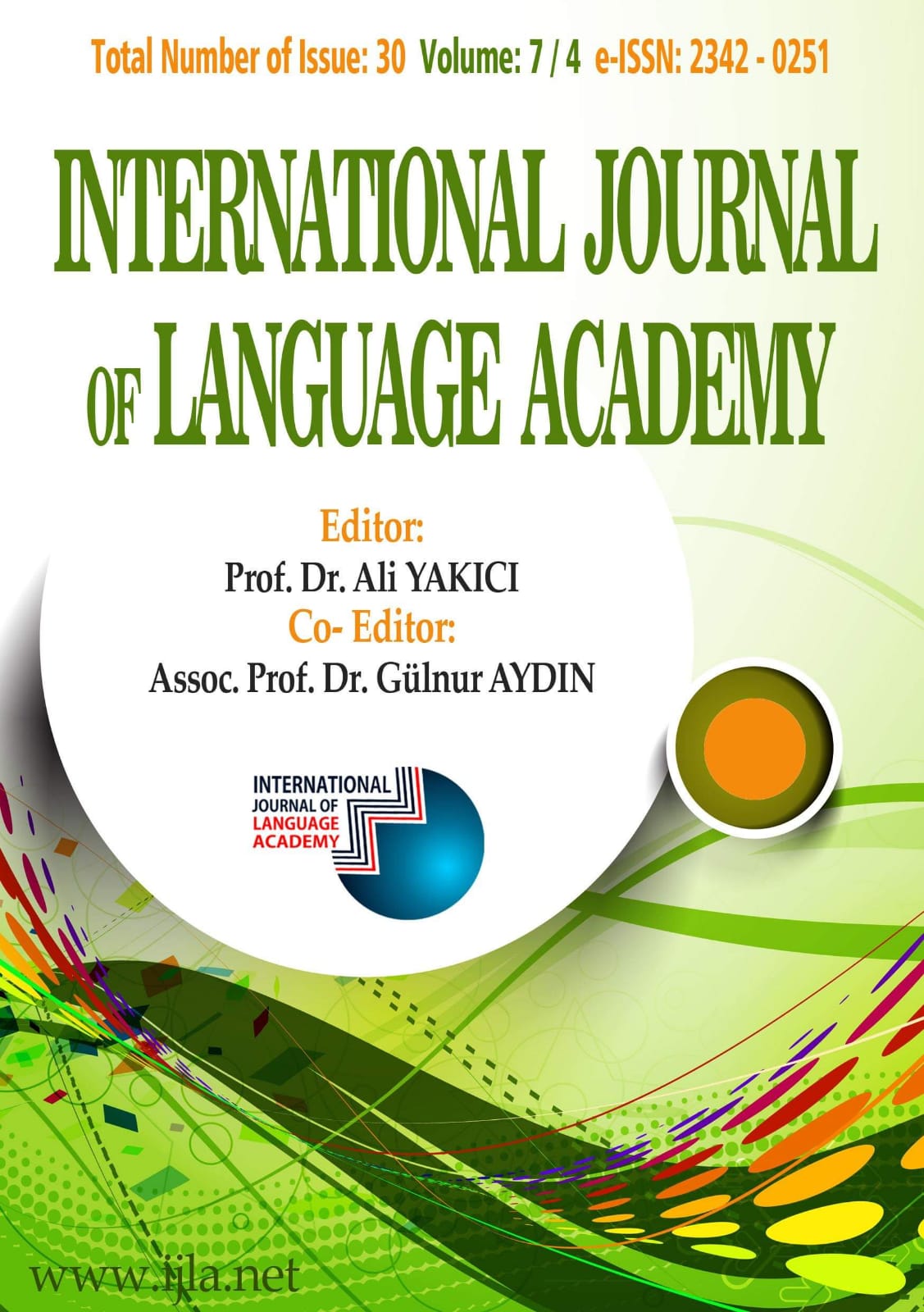Author :
Abstract
Ülkeler arası ikili ekonomik ve ticari ilişkilerin gelişmesi ile farklı ülkelerin yasal sistemlerinin de temasa geçmesi kaçınılmazdır. İşleyen bir iletişim için her türlü yasal metinlerin çevirisi gerekli ve önemlidir. Yasal metinlerin çevirisi kelime kelimesine yapılmamalı, çünkü bu dilin sadece cümleler bağlamında değil, aynı zamanda metinsel özellikleri bağlamında da irdelenmesi gerekmektedir. Hukuk metinlerin eksiksiz bir biçimde işlevlerini yerine getirebilmeleri için, yasal metinlerin çevirmenleri belirli bir yeterliliğe sahip olmalıdır. Sektörde geniş deneyime sahip çevirmenler bu tür çeviriler için kullanılmalıdır. Adli çevirmenler iki dilde temel dil becerilerine sahip olmalıdır ve her iki yasal sistem bilgisini bilmelidir, çünkü yetersiz bir çeviri yasal sonuçlara yol açabilir. Hukuk dili, gerek söz varlığı ve terminolojisi gerekse söz dizimsel özellikleri ile yazı dilinin en ağır, en karmaşık ve en anlaşılması zor halini oluşturmaktadır. Bu nedenle de işinde uzman olmayan çevirmenler için hukuk dilin çevirisi, algılaması ve yorumlaması oldukça zordur. Bu kolay algılayamama ve yorumlayamama, söz varlığıyla olduğu kadar zorluk yaratan terminolojik altyapıyla da ilgilidir. Çevirmenler her alanda olduğu gibi hukuk çevirisinde de terminolojik altyapı, söz varlığı ve söz dizimsel özellikleri bağlamında detaylı bilgiye sahip olmalıdır. Bu çalışmanın amacı Stolze'nin "Uzman Tercümeler - Kuram ve Uygulama Ders Kitabı" na dayanarak, Almanca-Türkçe hukuk metinleri çevirilerinden örnekler kullanarak, eklektik yöntem yardımıyla eşdizimleri ortaya çıkarmak ve çeviri için çözümler önermektir.
Keywords
Abstract
Due to the increasing economic interdependence between the countries, it is unavoidable that the legal systems of different countries come into contact. The translation of legal texts of all kinds is necessary for a functioning communication. The reproduction of legal texts should not always take place literally, but in order to fulfill their communicative function, specific competence of the translator of legal texts must also be present. The translation of legal texts and legal translations is a high degree of difficulty due to their subtlety and absolute necessity of perfect evidence and precision. Translators with ample experience in the industry should be used for this type of translation. Judicial translators should have basic linguistic skills in two languages - in our case German-Turkish - and knowledge of both legal systems. When translating texts with specialized language, in particular the legal texts, translation problems repeatedly arise that have to be mastered by the translators, because an inadequate translation can have legal consequences. Already during the study, the legal language is a horror for the students. Because the language of lawyers is in itself, even for the layman hardly understand. One reason for the difficulty of translating these texts is often based on collocations that cannot be properly reproduced in the target language. The aim of this work, using examples from German-Turkish translations of legal texts, is to uncover collocations with the help of the eclectic method and to propose solutions for the translation of legal texts become.
Keywords
- Baumann, Klaus Dieter, & Kalverkämper, Hartwig (2013): Theorie und Praxis des Dolmetschens und Übersetzens in fachlichen Kontexten. Berlin: Frank&Timme.
- Cedillo, Ana Caro (2004). Fachsprachliche Kollokationen. Tübingen: Günter Narr Verlag.
- Dressler, Wolfgang (1974): Der Beitrag der Textlinguistik zur Übersetzungswissenschaft. In V. Kapp, Übersetzer und Dolmetscher (S. 62). Heidelberg: Quelle und Meyer.
- Firth, J. R. (1957): Modes of Meaning, Papers in Linguistics 1934-1951. London, New York.
- Hoffman, Lothar (1985): Kommunikationsmittel Fachsprache. Eine Einführung. 2. völlig neu bearbeitete Auflage. Tübingen: Narr Verlag.
- Kalverkämper, Hartwig (1998): Rahmenbedigungen für die Fachkommunikation. Art 2 Lothar Hoffmann & Hartwig Kalverkämper& Hans E. Wiegand. De Gruyter Verlag, Berlin.
- Quasthoff, Uwe (2011). Wörterbuch der Kollokationen im Deutschen. Berlin: Walter de Gruyter.
- Sanders, Willy (1990): Gutes Deutsch-besseres Deutsch: praktische Stillehre der deutschen Gegenwartssprache. Darmstadt: Wissenschaftliche Buchgesellschaft.
- Schippel, Larisa (2006). Übersetzungsqualität: Kritik-Kriterien-Bewertungshandeln. Berlin: Frank und Timme.
- Stolze, Radegundis (2003): Hermeneutik und Translation. (Tübinger Beiträge zur Linguistik 467.) Tübingen: Narr
- Stolze, Radegundis (2009). Fachübersetzen - Ein Lehrbuch für Theorie und Praxis. Berlin: Frank&Timme.
- Wahrig-Burfeind, Renate (1997). Wahrig- Deutsches Wörterbuch. Gütersloh/ München: Bertelsmann Verlag.
- Zima, Peter (1992). Komparatistik - Einführung in die Vergleichende Literaturwissenschaft. Tübingen: Francke Verlag.





